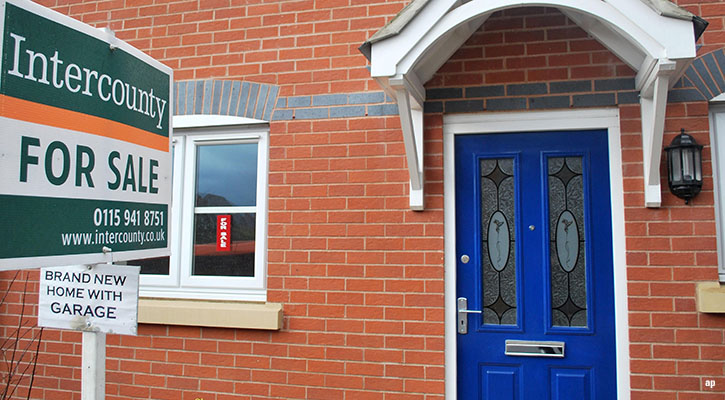
Daytime TV programmes would have you believe anyone can be a "property investor". But that world is bewilderingly vast: from owning flagship buildings like The Shard in London to holding a handful of housebuilder shares in a Sipp or ISA, it’s easy to gain exposure to the property sector. Investing thoughtfully, however, requires an understanding of what you're gaining exposure to – and what the risks are.
Investing for income also sets a higher bar in terms of capital discipline and preservation. Income investors tend to be older, relying on payouts to maintain their standard of living. If that's the case, then, is property a mainstream option for income or should it still be classed along with riskier alternatives like infrastructure, private equity or music royalties?
Property investing has been a wild ride in the last decade (some would say a speculator’s paradise) and may not suit everyone temperamentally. There’s no point chasing a high yield if the capital values are swinging around wildly. External factors can also play a huge part in property’s attractiveness. For instance, the pandemic shifted working patterns in commercial property, while house prices and demand have been jolted by the surge in mortgage costs.
If income investing is meant to be predictable, defensive and somewhat boring, then, doesn't all that sound a bit troublesome?
Residential vs Commercial
Let’s start with some options available to retail investors. The first choice you have to make is residential or commercial. Both have their own risks, market dynamics, capital returns and income prospects. Different rules also govern how people buy and sell houses versus, say, office blocks, shopping centres and warehouses. Government incentives such as Help to Buy, the Lifetime ISA, stamp duty holidays, shared ownership schemes, have tended to favour the residential market. Politically speaking, home ownership is a topic fraught with debate.
The more complicated choice is between direct and indirect exposure. Owning your own home outright or having a buy-to-let portfolio gives you direct exposure to the housing market. If you are the landlord of an office block, this is also direct exposure. Most retail investors instead have indirect exposure, however. You can buy shares in a housebuilder and that gives you a small stake in a company that owns land, builds and sells new build houses. You don’t own the houses but you own a company that does.
Since the financial crisis, companies like Persimmon, Taylor Wimpey, Barratt Developments and Berkeley have all benefited from rising property prices. Their shares rose sharply. Some paid very generous dividends too.
That era appears to be in the rear-view mirror now. Many had a tough 2022 in share price terms, and a new reality has hit. From having the best of all worlds (rising share prices and income) investors now face something of a squeeze.
Persimmon has been one of the UK's biggest dividend payers for many years, but lost 57% in 2022 in share price terms as investors began to price in a housing crash and downturn.
The housebuilder then followed up a bruising 2022 by cutting its dividend by 75% earlier this year and issuing a profit warning. So far it's been one of the slowest stocks in this sector to recover. On the flipside, Morningstar analysts think it's now one of the most undervalued in our coverage – indeed, it's the only stock with a 5-star rating.
Tentative Signs
Other rated shares fell sharply last year but have put in a decent showing so far in 2023. While most of the yields look enticing, especially Persimmon's, these are largely a reflection of weaker share prices.
Income investors in this sector have been richly rewarded in better times but will need to decide whether they can handle the share price volatility. Values seemed to price in the worst-case scenario last year, especially after Kwasi Kwarteng's disastrous mini-Budget jacked up mortgage rates.
Morningstar analyst Grant Slade says there are multiple reasons why investors are bearish on the sector.
"Investor sentiment has soured substantially for the UK's homebuilders, which face a challenging year for the rest of 2023. The UK's housing cycle has turned following a decade-long expansion that came to an end in late 2022.
"Housing market confidence is low in early 2023, with mortgage interest rates climbing to levels not seen in over a decade and house prices under pressure. Soaring build cost inflation also remains a distinct challenge to homebuilder profit margins in the near term."
Still, he thinks their current valuations imply the sector won't recover, rather than this being a cyclical low in the housing market.
"While near-term challenges certainly exist, the long-term outlook for the major UK homebuilders looks rosy. With UK homebuilders under our coverage well-positioned to ride out the near-term turbulence, investors stand to benefit from taking a contrarian position," he adds.
The 2023 "bounce" suggests some investors may have already taken this view.
The below table shows the state of play among Morningstar-rated housebuilder stocks.
In the next part of this feature, we look in detail at the pros and cons of the different property options.





























